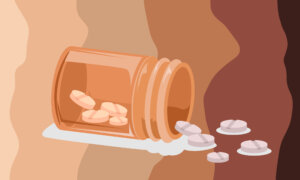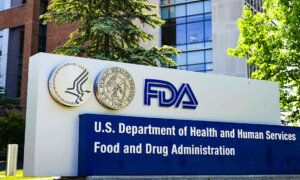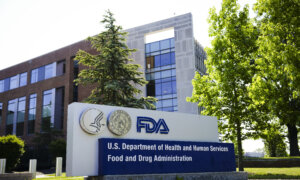Type 2 diabetes patients who went on a low-carbohydrate diet saw their insulin production double, potentially eliminating their need for medication, according to a new study published on Oct. 22 in The Journal of Clinical Endocrinology & Metabolism.
Type 2 diabetes occurs when insulin-producing pancreatic beta cells become less effective. Insulin is needed to regulate blood sugar levels, and when there is not enough being produced, blood sugar levels rise, causing various diseases linked to Type 2 diabetes.
No conventional drug for Type 2 diabetes has been shown to improve beta cells’ immediate insulin secretion. Beta cell function usually declines despite treatment with anti-hyperglycemic agents, the researchers wrote in the study.
“This study shows people with type 2 diabetes on a low-carbohydrate diet can recover their beta-cells, an outcome that cannot be achieved with medication,” Barbara Gower, lead author and professor of nutritional science at the University of Alabama–Birmingham, said in a statement. “People with mild type 2 diabetes who reduce their carbohydrate intake may be able to discontinue medication and enjoy eating meals and snacks that are higher in protein and meet their energy needs.”
Diabetes affects about one in 10 Americans, with Type 2 diabetes accounting for about 90 percent of cases, according to the U.S. Centers for Disease Control and Prevention. Lifestyle changes—including a healthy diet, regular physical activity, and weight management—have been shown to help prevent or delay the onset of Type 2 diabetes.
There is currently no cure for diabetes, but there are treatments available to manage it.
Insulin Production Doubled on Low-Carb Diet
Researchers conducted a randomized clinical trial with 57 Type 2 diabetes patients who weren’t using insulin treatments. The trial was designed to determine whether a change in diet alone would affect the beta cell function in people with Type 2 diabetes.
After discontinuing participants’ medications for one to two weeks, researchers divided participants into two groups: a low-carb group eating 9 percent carbohydrates and 65 percent fat and a high-carb group eating 55 percent carbohydrates and 20 percent fat.
After 12 weeks, participants whose diet was low in carbohydrates experienced a twofold increase in activity in the insulin-producing cells. Those served the higher-carbohydrate meals had a 32 percent increase in beta cell activity.
The researchers concluded that a carbohydrate-restricted diet “has beneficial effects on [beta cell] function in patients with mild [Type 2 diabetes].”
The new research could be very beneficial for diabetes patients, Dr. Jason Fung, a physician and the author of “The Diabetes Code: Prevent and Reverse Type 2 Diabetes Naturally,” told The Epoch Times.
“People with Type 2 diabetes need to know that a dietary intervention, reducing carbohydrates, has the potential to reverse their disease without the need for medication,” Fung wrote in an email.
While medication can help manage Type 2 diabetes, it cannot reverse the condition on its own, as it does not address its root cause: diet, according to Fung.
Since Type 2 diabetes is fundamentally a dietary disease, its reversal depends on dietary changes crucial for improving blood sugar control, rather than on medication.
Improved Beta Cell Activity May Halt Diabetes Progression
Beta cells’ insulin secretion immediately after meals, known as first-phase secretion, is important in removing excess glucose from the blood.
The researchers noted that inadequate first-phase secretion leads to high blood sugar levels, which initiates the development of Type 2 diabetes.
The study showed that low-carb dietary interventions could increase beta cell activity, suggesting that this dietary approach may be able to stop diabetes before it takes hold.
“This result reinforces the results of many other studies that showed the same thing: that reducing carbohydrates could reverse Type 2 diabetes,” Fung said.
Practical Recommendations
To follow a low-carb diet, Fung recommends eating meat, eggs, fish, shellfish, leafy green vegetables, and tofu. “Eat less [of] refined carbohydrates like bread, rice, potatoes, and noodles,” he said.
The American Diabetes Association acknowledges a substantial body of clinical evidence supporting the benefits of lower-carbohydrate dietary patterns for managing diabetes, Fung said.
The new study “adds to the growing body of evidence supporting the idea that reducing sugar consumption and promoting lifestyle changes should be the primary interventions for diabetes,” Dr. Chad Savage, an internal medicine physician, told The Epoch Times.
While the superiority of lifestyle changes over medication has been known for decades, systemic issues hinder implementation, according to Savage, who is affiliated with Samaritan Ministries International, a nonprofit health care organization.
“Many overlook the impact of the government-controlled, insurance-based payment system, which creates a harried physician workforce too rushed to dedicate the time and attention needed to support patients in making these challenging lifestyle changes,” he said.














